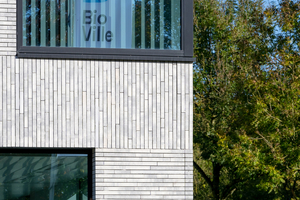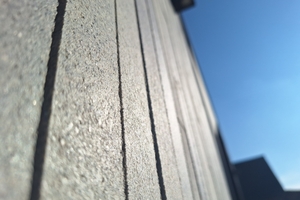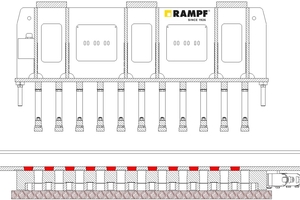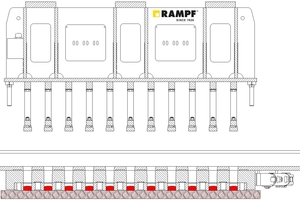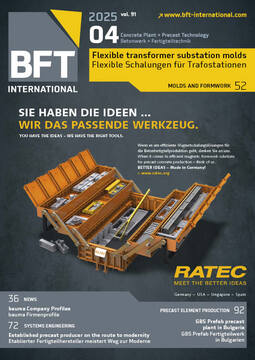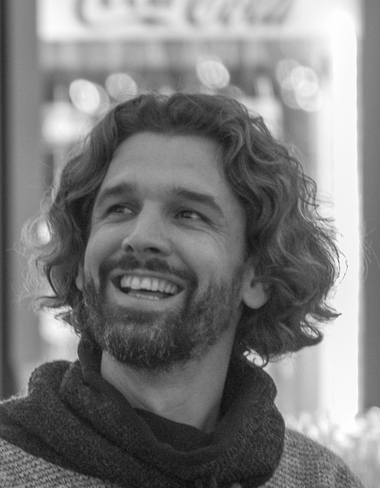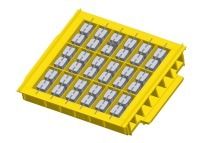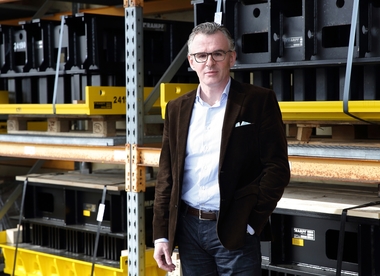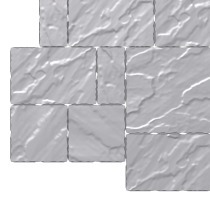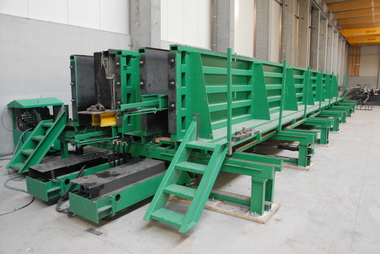New special mold developed in collaboration with the Belgian manufacturer Ebema
The Belgian concrete construction materials manufacturer Ebema employs a team of around 250 in its three subsidiaries in Zutendaal, Rijkevorsel and Grobbendonk. It generates an annual revenue of nearly 70 million euros. In addition to Ebema_LivingCity, the product line for the public sector, the product line for gardens, patios, driveways and homes is marketed under the name Ebema Stone&Style.
Collaboration based on partnership
Ebema is market leader in Belgium for a wide variety of products, both on the residential market as the public market. The name Ebema is a combined short form of “Edel” (precious) “Beton” (concrete) and “materials.”Ebema was one of Rampf’s first customers in Belgium. This decades-long collaboration based on partnership continues to this day. Together, the two companies have collaborated on many joint developments.
Owning to the decline of space in square metres for conventional paving blocks, Ebema has been looking for possibilities to tap new markets with new products. To this end, Ebema once again sought to Rampf for collaboration.
New product requirements
The objective here was to manufacture façade facing blocks only 2 cm thick. The concrete façade slip can be glued onto various base surfaces and is usually attached to insulation material. Products such as these are frequently used for climate-friendly new buildings and/or renovations. The advantage of these facing blocks of 2-cm thickness is the possibility to use thicker insulation with the same volume, since the outer facing is thinner.
With regard to their manufacture, conventional construction methods for molds do not allow processing of such low product heights for the following reasons:
Almost no standard production machine can use molds with a lower height of 4 cm and cannot manufacture product heights of 20 mm.
A mold of standard design would not be able to resist vibration loads for sufficiently long periods of time, causing the molds to crack and/or break.
Accordingly, it was necessary to develop a new kind of mold to be able to produce this kind of products in a plant that was not originally intended for this purpose.
The mold would therefore have to meet the following requirements:
A stable mold that withstands the vibrations encountered;
Optimal and uniform fill of all mold cells;
Long service life;
Ability to produce different product heights;
Mold usable on various machines;
Exchangeable wear parts;
Large inlet and sliding surface between tamper shoe and mold to reduce wear.
The resulting solution approaches are as follows:
The mold is fitted with a movable slide on its upper side;
The thickness / height of the slide is specified by the height of the concrete product;
The slide, after filling, is hydraulically moved across the mold insert;
The pre-dosed material drops into the mold cell;
The actual mold insert has a height of approx. 100 mm;
The tamper head compresses the quantity in the mold insert pre-dosed by the movable slide.
This now enables Rampf’s customer, Ebema, to use molds of >100 mm height on every machine without difficulty. The mold is, in addition, very stable and wear is minimized by the long guide of the tamper shoe and the mold insert. The tamper head can be equipped with a heater so that the concrete can be processed as wet as possible. This increases the strength of the product. With this mold, strips of 16.5 mm height have already been manufactured. They can bear a weight of 14 kg when placed on two sides.
Vertical stacking the pallet prevents the products from breaking during transport. The strips can be processed very effectively.
Ebema owns the patent for this mold and the process of manufacture of thin products in this way on a standard machine. The Belgian manufacturer collaborates with Rampf to the extent that Rampf manufactures and markets these molds. The customers, however, need a license from Ebema before commencing production.
CONTACT
Rampf Formen GmbH
Altheimer Str. 1
89604 Allmendingen/Germany
+49 7391 505-0
Ebema
Dijkstraat 3
3690 Zutendal/Belgium
+32 89 610011
1953: Ebema takes up production of concrete blocks.
1970: Purchase of a mobile curbstone production plant and entry into the curbstone business.
1977: With more than 200, 000 m² per year, a major milestone in production of concrete blocks is achieved.
1986: Ebema opens a new concrete plant (currently hall 4) that is well suited for manufacture of concrete blocks, concrete pavers and curbstones.
1991: Foundation of N.V. Falcon Automation – an ICT company that offers hard- and software solutions both for in-house use and for external customers.
1994: In the brand-new hall (currently hall 9) two new production machines – constructed in-house - are commissioned.
1996: In Zutendaal, a new administration building with 1,700 m² office space is opened. The inauguration takes place within the scope of the celebrations of Ebema’s 50-year anniversary.
1997: Ebema takes over Avanti in Rijkevorsel, now Ebema Rijkevorsel. This company specializes in paving materials, dike reinforcement and customer-specific adjustments. EBS-Beton in Sint-Truiden is a second acquisition.
1998: Ebema enters the private sector with its own brand Stone & Style.
2000: A new clinker and curbstone press is commissioned on the site of Rijkevorsel.
2006: Continuous growth: the total turnover of Zutendaal and Rijkevorsel exceeds 30 million euros. The share of the Stone&Style product line on the overall turnover increased to 40 %. Construction of current hall 3 with installation of the palisade machine.
2009: The Ebema Stone&Style Smooth line is introduced. Ebema has now a series with the charm of velvet-smooth architectural concrete.
2011: Ebema commissions another hall in Rijkevorsel, where the products are cast in architectural, self-compacting concrete (SCC)
Also in 2011, VKW Limburg Ebema is distinguished with the Ambiorix Prize – a prestigious distinction for growth companies that at the same time attach importance to the well-being of their personnel and the environment.
2013: In Zutendaal Ebema invests 3 million euros in a new office complex for production and maintenance. The new 2000 m² building will also accommodate the new lab and the CreativeLab - an inspirational space for new ideas. Furthermore Ebema builds a state-of-the-art production hall in Zutendaal – and investment of 11 millionen euros. The new plant enables fast production change between curbstones, concrete paving blocks and tiles. The result is a larger production capacity, smaller storage inventory, possibilities for smaller production runs and faster delivery.
2018-2020: Ebema is awarded several prestigious prizes: the Voka KVK Limburg HR award (2018), the Febe Elements Award for De Motten (2019), the Henry van de Velde Award for The Waterbench and, for the fourth consecutive time, the FEMA award for Belgium’s best
construction materials trader (both in 2020).
2021: Ebema celebrates on 29 September its 75-years anniversary and participates strategically in concrete floor slab manufacturing with Eurodal.
2022: This year, too, Ebema is especially distinguished: the Febe Elements Award for Garden Streets Antwerp and the Febe Element Award for the City River Project in Ostende.
2023: Introduction of the façade facing (Panorama collection) in January and the first project of geopolymer concrete (warehouse C) in May.
2024: For the third year in a row, and for the fifth time in five years, Ebema wins a Febe Elements Award, this time for a project situated in Paris
with a concrete tree root development System.


